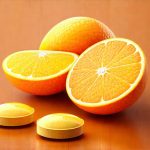Irritable Bowel Syndrome (IBS) is a chronic gastrointestinal disorder affecting millions worldwide, characterized by abdominal pain, bloating, gas, diarrhea, and constipation – often in varying combinations. Many individuals with IBS find that certain foods exacerbate their symptoms, leading to a cautious approach to diet. Vegetables, undeniably vital for overall health, frequently fall under scrutiny due to their potential to increase gas production. This creates a dilemma: how can someone benefit from the nutritional value of vegetables without triggering uncomfortable IBS flare-ups? The answer isn’t as simple as eliminating all “gassy” veggies; it requires understanding why these foods cause gas and learning strategies for managing individual sensitivities.
The perception that certain vegetables are inherently “bad” for IBS stems largely from their composition, specifically the presence of fermentable carbohydrates. These carbohydrates, which include FODMAPs (Fermentable Oligosaccharides, Disaccharides, Monosaccharides And Polyols), aren’t necessarily harmful themselves, but they resist digestion in the small intestine and reach the colon where bacteria feast on them, producing gas as a byproduct. However, it’s crucial to remember that everyone’s gut microbiome is unique, meaning tolerance levels vary drastically. What triggers symptoms in one person might be perfectly fine for another. Furthermore, focusing solely on eliminating foods can sometimes lead to unnecessary restrictions and nutritional deficiencies; a more nuanced approach focused on identifying individual trigger foods and managing overall diet is far more effective.
Understanding FODMAPs and IBS
FODMAPs are the primary culprits behind gas production in many individuals with IBS. These carbohydrates aren’t broken down effectively by the small intestine, leading to osmotic effects – drawing water into the colon – and fermentation by gut bacteria. This dual action results in bloating, discomfort, and increased flatulence. There are four main categories of FODMAPs:
- Fructose: Found in fruits, honey, and some vegetables.
- Lactose: Present in dairy products.
- Fructans: Common in wheat, onions, garlic, and certain vegetables.
- Galactans: Found in legumes (beans, lentils) and some vegetables.
- Polyols: Including sorbitol and mannitol, found in fruits like apples and pears, as well as artificial sweeteners.
The Low-Fiber Diet for IBS with Diarrhea, often recommended for IBS management, isn’t intended to be a long-term solution but rather an investigative tool. It involves temporarily eliminating high-FODMAP foods to identify sensitivities and then gradually reintroducing them to determine tolerance levels. This process is best undertaken with the guidance of a registered dietitian specializing in gut health, as strict elimination can lead to dietary imbalances. The goal isn’t necessarily complete avoidance, but rather understanding what quantities of specific FODMAPs an individual can tolerate without experiencing symptoms. It’s important not to self-diagnose or implement restrictive diets without professional support.
It’s also worth noting that the way a vegetable is prepared can significantly impact its FODMAP content. For example, soaking beans before cooking reduces their galactan levels, and peeling certain vegetables like zucchini can lower their fructose content. Cooking methods can also play a role; steaming or boiling generally results in less FODMAP absorption compared to raw consumption. The key takeaway here isn’t avoidance but modification and mindful preparation of these potentially problematic foods.
Navigating Common “Gassy” Vegetables
Many vegetables are frequently labeled as “gassy” due to their FODMAP content, but blanket statements can be misleading. Let’s explore some common examples and how to approach them within an IBS-friendly diet:
Broccoli & Cauliflower: These cruciferous vegetables are rich in nutrients but also contain fructans. Individuals sensitive to fructans may experience significant gas and bloating after consuming them. However, portion size matters immensely; a small serving might be tolerated, while a large one could trigger symptoms. Cooking methods can also help – steaming or roasting broccoli until tender-reduced can improve digestibility for some.
Onions & Garlic: These alliums are particularly high in fructans and often major triggers for IBS sufferers. Alternatives like asafoetida (hing) can provide a similar savory flavor without the FODMAPs, but it should be used sparingly due to its potent aroma. Green parts of onions generally contain lower levels of fructan than the white bulb.
Cabbage: Another cruciferous vegetable with moderate fructan content. Fermented cabbage, like sauerkraut or kimchi (in small quantities), can actually benefit gut health for some individuals due to the presence of probiotics; however, it’s essential to assess individual tolerance as fermentation can also produce gas.
The Role of Gut Microbiome & Fiber
The composition of your gut microbiome plays a crucial role in how you process and react to vegetables. A diverse and healthy microbiome is better equipped to handle fermentable carbohydrates without producing excessive gas. Conversely, an imbalanced microbiome (dysbiosis) may exacerbate symptoms. Dietary fiber, found abundantly in many vegetables, is essential for nurturing a healthy gut microbiome – but it’s also a key contributor to fermentation. This creates another layer of complexity for individuals with IBS.
- Soluble Fiber: Dissolves in water and forms a gel-like substance, slowing digestion and potentially reducing diarrhea. Found in oats, barley, apples, and carrots.
- Insoluble Fiber: Adds bulk to stool and promotes regularity. Found in whole grains, vegetables like broccoli, and fruit skins.
For some individuals with IBS, increasing fiber intake too quickly can worsen symptoms. A gradual introduction of fiber, coupled with adequate hydration, is essential. Focusing on low-FODMAP sources of soluble fiber may be a good starting point. Prebiotic fibers – those that feed beneficial gut bacteria – can also be helpful, but again, individual tolerance varies greatly.
Beyond FODMAPs: Other Considerations
While FODMAPs are often the primary concern, other factors related to vegetables can contribute to IBS symptoms. Sulfur-containing compounds, found in vegetables like broccoli and Brussels sprouts, can be difficult for some people to digest, leading to gas and bloating. Similarly, certain vegetable oils used in cooking may trigger symptoms in sensitive individuals.
Food sensitivities: Beyond FODMAPs, individual sensitivities to specific components within vegetables (e.g., salicylates, amines) can also play a role. Keeping a detailed food diary – tracking what you eat, when you eat it, and any associated symptoms – is invaluable for identifying these triggers. Mindful eating practices are crucial as well:
- Eating slowly and chewing thoroughly aids digestion.
- Avoiding large meals reduces the burden on the digestive system.
- Staying adequately hydrated supports healthy bowel function.
Ultimately, managing IBS and enjoying a vegetable-rich diet is about personalization. There’s no one-size-fits-all solution. It requires experimentation, careful observation, and potentially guidance from healthcare professionals to determine what works best for you. The goal isn’t necessarily eliminating gassy vegetables entirely but rather finding ways to incorporate them into your diet in a way that minimizes discomfort and maximizes nutritional benefit. If you are concerned about digestive health, consider if are supplements a risk when introducing new dietary changes. Understanding the impact of these foods is important, but so is ensuring your overall wellbeing. Perhaps explore how morning light and gentle movement can help support your digestive system in conjunction with diet. For parents concerned about children, consider if some kids are always bloated. If you suspect sensitivities beyond FODMAPs, it’s worth considering natural sweeteners always safe and their potential impact. Finally, remember that sensitive stomachs may react differently to certain foods than others.


















